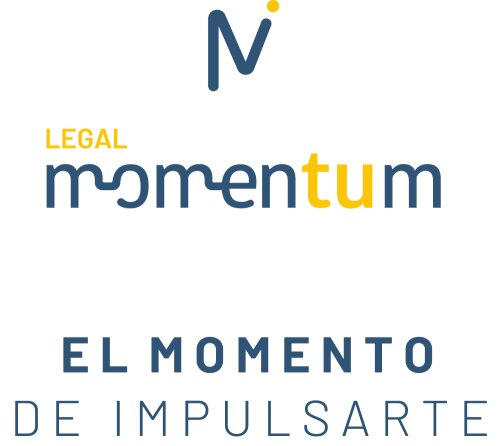Best Criminal Litigation Lawyers in Salamanca
Share your needs with us, get contacted by law firms.
Free. Takes 2 min.
List of the best lawyers in Salamanca, Spain
About Criminal Litigation Law in Salamanca, Spain
Criminal Litigation in Salamanca, Spain involves the legal processes and procedures related to prosecuting and defending individuals or entities accused of criminal conduct under Spanish law. Located in the autonomous community of Castile and León, Salamanca upholds the principles of the Spanish Penal Code alongside local court practices. Criminal litigation handles a range of offenses, from minor infractions to serious crimes such as theft, assault, drug offenses, and organized crime. Legal proceedings may involve arrest, investigation, court hearings, trials, and, if necessary, appeals. Defendants have important rights, such as presumption of innocence, the right to counsel, and the right to a fair trial, all protected by the Spanish Constitution and procedural law.
Why You May Need a Lawyer
If you are facing criminal charges or are involved in a criminal investigation in Salamanca, you may benefit from specialized legal assistance. Common situations where a lawyer’s expertise is essential include:
- Being accused or formally charged with a crime
- Detention or arrest by local authorities
- Being called as a suspect or witness in a criminal case
- Victims of crime seeking prosecution or compensation
- Appealing a court’s decision or sentence
- Handling juvenile, drug-related, or domestic violence cases
- Receiving a European Arrest Warrant or facing extradition proceedings
Criminal lawyers provide guidance throughout police interrogations, bail hearings, trials, plea negotiations, and appeals. They also ensure your rights are protected from the beginning to the end of your case.
Local Laws Overview
Criminal litigation in Salamanca is primarily governed by the Spanish Penal Code and the Ley de Enjuiciamiento Criminal (Criminal Procedure Law). Some local aspects to be aware of include:
- All criminal cases are handled by the courts of Salamanca province, which include Juzgados de Instrucción (Investigation Courts), Juzgados de lo Penal (Criminal Courts), and more serious matters by the Audiencia Provincial.
- The Spanish system distinguishes between misdemeanors (delitos leves), ordinary crimes (delitos), and serious crimes (delitos graves), each with different procedures and penalties.
- Throughout criminal proceedings, individuals have a right to a lawyer. If you cannot afford one, the courts can appoint a public defender.
- Criminal records in Spain can have serious consequences, such as restrictions on employment, travel, and residence permits for foreigners.
- International cooperation treaties may affect cases involving foreign nationals or crimes committed across borders.
Frequently Asked Questions
What should I do if I am arrested by the police in Salamanca?
Remain calm and cooperate. Request to contact a lawyer immediately. Do not answer questions beyond your identification until your lawyer is present, as you have the right to remain silent.
Can I receive a court-appointed lawyer if I cannot afford legal representation?
Yes, if you meet the legal requirements for insufficient financial resources, you may request a public defender, known as a "abogado de oficio."
What are my rights during a police investigation?
You have several essential rights, including being informed of the charges, the right to legal representation, the right to remain silent, and the right to be treated with dignity.
How long do criminal proceedings usually take in Salamanca?
The timeline depends on the complexity and seriousness of the case. Misdemeanor cases may be resolved within months, while serious offenses or appeals may take a year or more.
What happens if I am found guilty?
If convicted, the court will issue a sentence which could include fines, community service, probation, or imprisonment, depending on the crime. Your lawyer can advise about appealing the decision.
Can I appeal a criminal conviction?
Yes, Spanish law provides several levels of appeal, from the Audiencia Provincial to regional Supreme Courts and, in some cases, the Spanish Supreme Court.
Are criminal records permanent in Spain?
Some criminal records can be expunged after a period of time and compliance with the penalty. Your lawyer can explain eligibility and how to apply for record cancellation.
What should foreign nationals know if charged with a crime in Salamanca?
Foreigners have the right to an interpreter and to contact their consulate. Criminal convictions may impact their residency or immigration status.
Can victims of crime pursue compensation through the criminal process?
Yes, victims can seek compensation for damages as part of the criminal proceedings. Legal counsel can guide you through the process of becoming an "acusación particular" or private prosecutor.
How confidential are my communications with my lawyer?
Lawyer-client confidentiality is strictly protected by Spanish law. Your discussions with legal counsel are private and cannot be disclosed to courts or third parties.
Additional Resources
Several organizations and authorities in Salamanca and Spain provide information or support related to criminal litigation:
- Ilustre Colegio de Abogados de Salamanca - The local Bar Association can help you find a registered criminal lawyer.
- Ministerio de Justicia - The Spanish Ministry of Justice offers information about criminal law and procedure.
- Juzgados y Tribunales de Salamanca - The local courts provide official forms and judicial services.
- Oficina de Atención a las Víctimas del Delito - Assistance offices offer support and guidance for victims of crime.
- Policía Nacional and Guardia Civil - National police authorities can provide information on filing complaints and your legal rights.
Next Steps
If you require legal assistance with a criminal litigation matter in Salamanca, consider the following actions:
- Gather all documents and details related to your case, such as police reports, summons, or correspondence.
- Contact a qualified criminal lawyer, either privately or through the local Bar Association, as soon as possible. Early legal advice is critical.
- Inform your lawyer of all facts truthfully, keep communication lines open, and follow their recommendations closely.
- If detained, request your right to a lawyer and do not make statements without counsel present.
- For victims, reach out to official support services or legal offices for guidance on pursuing a complaint or compensation.
Navigating criminal litigation can be complex and stressful. Professional legal support ensures your rights are protected and your options are clearly explained throughout every stage of the process.
Lawzana helps you find the best lawyers and law firms in Salamanca through a curated and pre-screened list of qualified legal professionals. Our platform offers rankings and detailed profiles of attorneys and law firms, allowing you to compare based on practice areas, including Criminal Litigation, experience, and client feedback.
Each profile includes a description of the firm's areas of practice, client reviews, team members and partners, year of establishment, spoken languages, office locations, contact information, social media presence, and any published articles or resources. Most firms on our platform speak English and are experienced in both local and international legal matters.
Get a quote from top-rated law firms in Salamanca, Spain — quickly, securely, and without unnecessary hassle.
Disclaimer:
The information provided on this page is for general informational purposes only and does not constitute legal advice. While we strive to ensure the accuracy and relevance of the content, legal information may change over time, and interpretations of the law can vary. You should always consult with a qualified legal professional for advice specific to your situation.
We disclaim all liability for actions taken or not taken based on the content of this page. If you believe any information is incorrect or outdated, please contact us, and we will review and update it where appropriate.














